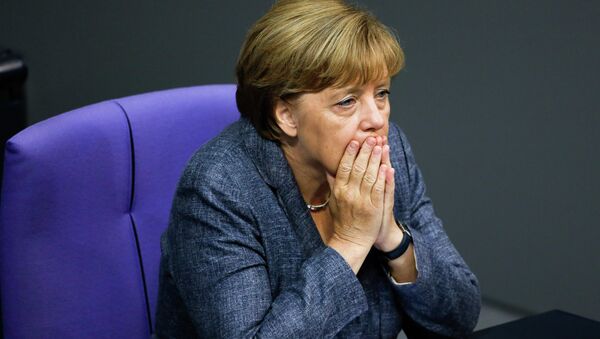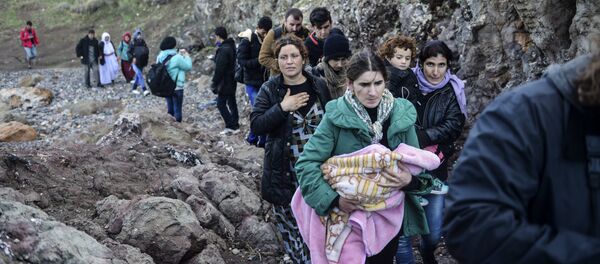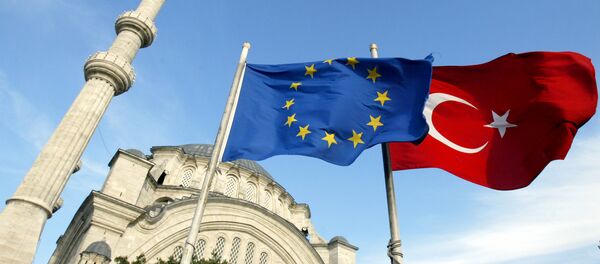Merkel was asked whether the meeting of eight countries, led by Germany and backed by EU Commission President Jean-Claude Juncker, represented a step towards a more united EU.
"At the moment, I don't think so," replied the German chancellor, the German press reported on Monday, interpreting the reply as a guarded departure from the usual response, that the EU is able to find a solution to any problem.
"This response is quite severely doubtful, in diplomatic German. As a rule, political and strategic questions are not answered in a way that can leave open the possibility of fundamental failure," wrote Deutsche Wirtschafts Nachrichten [DWN].
"Had Merkel been convinced that it will not come to a split, she would have said, 'I know that we are faced with difficult negotiations, but the EU has always managed to find a compromise.'"
#News: Angela Merkel zweifelt erstmals am Fortbestand der EU: Bundeskanzlerin Ange… https://t.co/5mTrDqFwws #Hot https://t.co/bTnQ59ofi2
— ist-ja-reizend (@ist_ja_reizend) 30 ноября 2015
Angela Merkel doubts for the first time the EU's continued existence.
Merkel's remark was aimed at putting pressure on the leaders of eastern European countries, which have voted against migrant quotas in Europe but who benefit from the economic advantages of the European Union, the newspaper believes.
On Sunday, the heads of state or government of the EU's 28 members met with the Turkish government to offer concessions to Ankara, with the aim of persuading Turkey to control its borders.
The EU has promised to speed up Turkey's accession to the EU, the possibility of visa-free movement for Turkish citizens in Europe, and promised Ankara 3 billion euros ($3.2 billion) in order to improve life for migrants in Turkey, in the hope that they will decide to stay there, and not migrate to Europe.
New Polish Prime Minister Beata Szydlo expressed disquiet about the meeting of eight, having attended another summit between the Czech Republic, Hungary, Poland, and Slovakia, where those countries reiterated their opposition to EU resettlement or relocation quotas.
"I cannot imagine that decisions will be taken in such a format [the summit of eight countries] and then imposed on other member states," said Szydlo.




